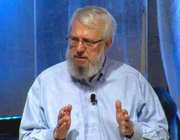Be Steadfast: A Letter to Confessing Christians (Abraham. 2000) [signatory]
God alone renews and continues to bless his people. God has not abandoned his church, and calls us to keep faith with him and those dear to him. We are called to be obedient to the faith once for all delivered to the saints.
In thanksgiving for God’s promises fulfilled in Jesus Christ, we seek to humble ourselves before him, pray, seek his face, and turn from sin, that he may hear, forgive and heal. We all stand under divine judgment; we all are in need of divine grace.
We give thanks also for this, the first North American gathering of renewing and confessing movements. Your conveners have asked confessing theologians to address three urgent questions facing all mainline renewal movements.
Why should we remain in our churches?
Why do our churches need faithful confessors?
Why does our society need faithful Christian confessors?


![Be Steadfast: A Letter to Confessing Christians (Abraham. 2000) [signatory]](https://www.theologyethics.com/wp-content/uploads/2011/09/abraham3.jpg)


